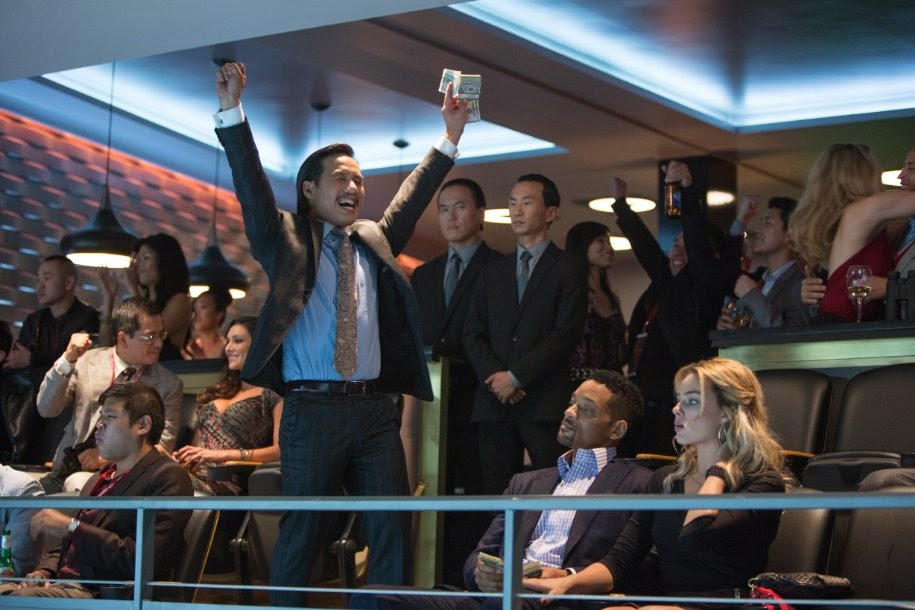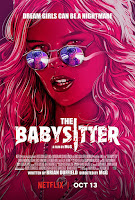Barry Lyndon
Barry Lyndon
(1975)
Directed by: Stanley Kubrick
Written by: Stanley Kubrick, based on William
Makepeace Thackeray's Novel
Starring: Ryan O'Neal, Marisa Berenson,
Leon Vitali, Patrick Magee
Rating: PG
Release Date: December 18th, 1975
 |
| Ryan O'Neal and his drunken entourage in Barry Lyndon Image Source |
Barry Lyndon follows the eponymous Barry, (played by the underrated Ryan O’Neal), whom we first meet in his quaint hometown in Ireland. Familiar with the rough and tumble lifestyle of Irish life under the British class system, Barry is well aware of his status, and the hopelessness of his existence as a nobody in a world full of somebodies. Attempting to remain chivalrous and pure, his attempts falter when seduced by his cousin, Nora, (Gay Hamilton), in a moment of innuendo spurred on by forbidden desires and, (more likely), the boredom of the 18th century. Yet, Lyndon’s newfound quasi-incestuous love, (which is guess is normal when you’re royalty?), is challenged when a member of the British Army falls in love with Nora, and asks for her hand in marriage. Challenged by the class system, the loss of his first and only love, and the fact his Irish ancestry has left him with few options in life, he challenges the British general to a duel. Through a barrage of gunpowder and repressed male rage, Lyndon is left with a dead general, dissatisfaction, and a community from which he has been ostracized. On the run from the law, his former family and his own demons, Lyndon flees the country and finds himself falling further and further into new situations and unique people.
The remainder of the film chronicles the rise and fall of Barry Lyndon, who we watch become the Walter White of the 18th century. Although Lyndon’s story may seem not all that interesting at face value, it’s the peripherals and those he effects that make his story so compelling. Through his butting of heads with the Lords of London’s high life, to gambling his way into the arms of a wealthy widower, to losing the only thing he ever truly loves through his own negligence and inability to look after anyone other than himself, Lyndon’s story arc is complex, in-depth and deeply relatable to not only most people, but current world events and political climates. Capitalism, true love versus love of self, gender roles, monarchies, and the depths of the human condition are all appropriate metaphors for Lyndon's life experiences. The tone of the film, moving subtly from completely serious to clever satire, is brilliant. Although Lyndon's story is unique and specific to him, the broader strokes are a universal tale. Overall, Barry Lyndon is a compelling and wholly original story, with a somewhat complex plot that relies more on body language and what's left unsaid than it does exposition or dialogue. However, the real reason to experience Kubrick’s best film is the cinematography.
Filmed using virtually only natural light; (sunlit exteriors and candlelit interiors), Kubrick’s vision is a singular showcase of absolute beauty. Every single frame within the three-plus hour running time is framed in such a way that pausing it would result in an image that mimics the best of the Romantic-era artists and their greatest works. From floating on a pond on a crystal clear summers day, to the fog of war, or the funeral of a life lost too soon, Kubrick films Lyndon’s every minute detail with the grace and skill of some of the greatest artists of all time. Not only is Barry Lyndon a cinematic work of genius, it’s also a work of art – I wouldn’t be surprised to find the film standing the test of time, and being revisited centuries from now on the silver screens of tomorrow.
Additionally, as it is with the cinematography, keen attention is paid to the soundtrack. When we first meet Barry, the accompanying music is simple flute compositions. In war, it’s drums. As the audience moves alongside Lyndon up the social ladder, the music gets more and more complex; first a cello and a harpsichord, then chamber music, all the way up to a half orchestra. It’s a subtle, but brilliant way to convey the class system that doesn’t rely on dialogue or visuals. Finally, it’s the performances that really nail the film home.
Although there’s barely enough dialogue to fill an episode of Cheers, the script simply doesn’t demand it. Through the aforementioned cinematography, body language, and clever soundtrack, there are multitudes of things left unsaid that the audience can still pick up on. However, the few lines that the characters speak, especially in Ryan O’Neal’s case, are spoken with such conviction, that the audiences fully believe in the character. As Lyndon, O’Neal gives the best performance of his career – spanning decades of fictional time – requiring talent to fill a role that goes from heroes tale, to comedy, to the dissection of an anti-hero all the way into a near-Shakespearean tragedy. It’s a hell of a role, and O’Neal nails it. Although most of the other supporting roles aren’t very dialogue heavy, Marisa Berenson, as the scorned wife Lady Honoria Lyndon, Leon Vitali as the exiled stepson and Patrick Magee as the Irish Chevalier du Balibari, who takes Lyndon under his wing, are all essential roles, filled with brilliant performances.
All in all, Barry Lyndon is a masterwork by a master filmmaker. It’s a tough, demanding picture to sit through, but infinitely rewarding if one has the time and patience to do so. Nearly perfect in a filmmaking sense, it’s lack of dialogue and insistence of natural lighting make it a unique experience that hasn’t really been achieved before or after, (although Alejandro G. Iñárritu's The Revenant comes very close). With works like Dr. Strangelove, Spartacus, Eyes Wide Shut and The Shining, Kubrick proved himself a master of any genre, and any time period. Although he famously was hard on his cast and crew, and was deeply eccentric, it pays off exponentially onscreen. Like I said at the beginning of my review, every person has a universe inside themselves. It’s a damn shame Kubrick died with only 13 full features under his belt; I have a feeling there was an infinite universe of boundless creativity within.
GRANT'S RATING: 5/5 STARS
Barry Lyndon opening/clip: "Barry's Father"



Comments